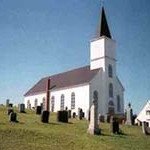Several of Connecticut’s cities and towns have existed since the 1600s and 1700s. In fact, the earliest settlements in the state began in the 1630s. It was 1633 when a fort was constructed by the Dutch near what is now Hartford. Soon after that, the English Puritans took over that area.
The English also created settlements in Hartford, Windsor and Wethersfield in the 1630s. Then, in 1639, those three settlements formed into one colony governed by a modern constitution of sorts called the Fundamental Orders. It was known as the Connecticut Colony. During the Revolutionary War, Connecticut was the source for supplies for the Continental Army. In fact, the state quickly became an industrial hub, even gaining the nickname “Arsenal of the Nation.”
Connecticut is a state with many of the nation’s “firsts” and which has a tremendous amount of history connected to it. This is why there are so many libraries, museums, historical organizations, and other groups that can provide someone with a huge amount of material for Connecticut genealogy projects of all kinds. Whether you are scouting around for details about a Revolutionary War hero in the family, or even your connection to a Native American tribe, there is likely to be some good resources available. Naturally, the trick is to find them and get the details.
Connecticut Counties – The Connecticut Colony existed from 1636 to 1776. The State of Connecticut was one of the 13 original colonies and created as the 5th state on Jan. 9, 1788. created as the 5th state on January 9, 1788. Connecticut borders Massachusetts, New York and Rhode Island. Connecticut has 8 Counties. The Connecticut State Capital is in Hartford and the state government website is ct.gov.
Select a Connecticut county to view information & records pertaining to each County
Connecticut Genealogy Record Guides
Connecticut Genealogy Tips & Hints
The Best Approach for Connecticut Genealogy – These essential details for a Connecticut genealogy project will be found on a home computer or will require a visit to one of the many types of locations already mentioned. Because there are resources available in both the online and “offline” formats, it is essential that you begin to learn where you can find the things you seek.
In this present day there is a huge amount of “digitizing” going on, and once private archives are now searchable through online databases. This is going to continue into the future, but for now we still have to accept that some things remain in archives, file cabinets, and museum displays. This means your best first step in research for Connecticut genealogy is to find out where the records you require are located.
The common approach that all researchers for Connecticut genealogy will use will tend to include both online and offline records searches. This means that they are accessing:
-
- Local Records – a county clerk’s office or website is a “must see” destination from which you can then move on to the local genealogical societies, small local libraries, historical societies, and school or college libraries for Connecticut genealogy data. This is data that is usually offline and viewable by appointment or special arrangement.
- State Records – offering everything from probate information to surname lists, state census information, private manuscripts, newspapers, military or veterans information, marriage details, maps, land records, genealogical folders, estate information, deeds, death records, cemetery information, birth certificates and more, these are available as online and offline resources for Connecticut genealogy.
- Vital Records – these records will always include birth, marriage, divorce and death records from county, state, and national archives. Here you will find census records, newspaper items, cemetery or obituary information, military records, immigration and naturalization details, passenger lists and records as well. These are available as online and offline resources for Connecticut genealogy.
- County Record Guides for: Fairfield, Hartford, Litchfield, Middlesex, New Haven, New London , Tolland, Windham
Essential Tools for Connecticut Genealogy – Once you begin using the most effective sources for Connecticut genealogy projects, you understand which have the most information for your needs. Below are the details for some of the best tools for Connecticut genealogy:
Vital Records for Connecticut genealogy can be found in two ways, Directly from the town where the event occurred, or Directly from CT Department of Public Health, State Office of Vital Records, 410 Capitol Ave. MS#11VRS, P.O. Box 340308, Hartford, CT 06134-0308; Website: http://www.ct.gov/dph/cwp/view.asp?a=3132&q=388130&dphNav=|46940
Additional state and local records can be found at the Connecticut State Library, State Library’s History and Genealogy Unit , 231 Capitol Avenue, Hartford, CT 06106; Toll-free 866-886-4478 . Here you can find a lot of “how to” information for using the archives, a tremendous amount of archival material that includes bible records, census data, church records, several private collections, atlases and much more.
Connecticut Genealogy Databases and other Helpful Links
Additionally, the following websites provide a tremendous amount of state-specific details to those in search of facts for Connecticut genealogy projects.










